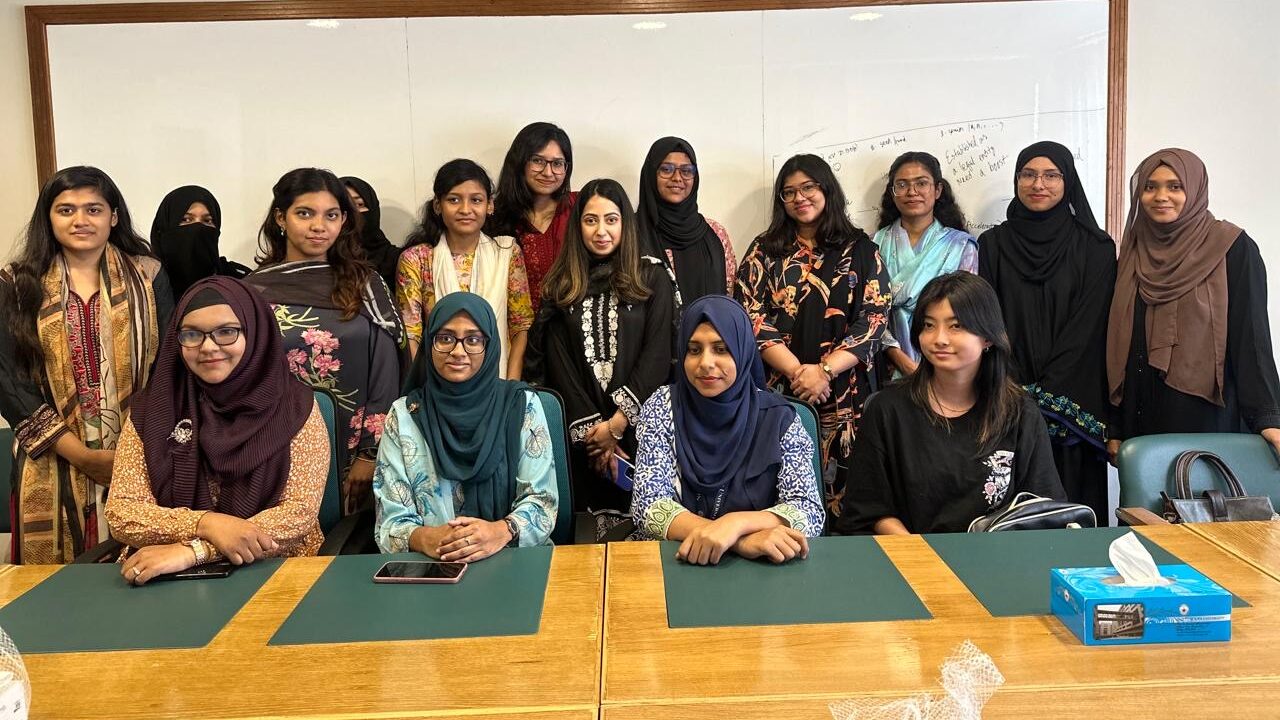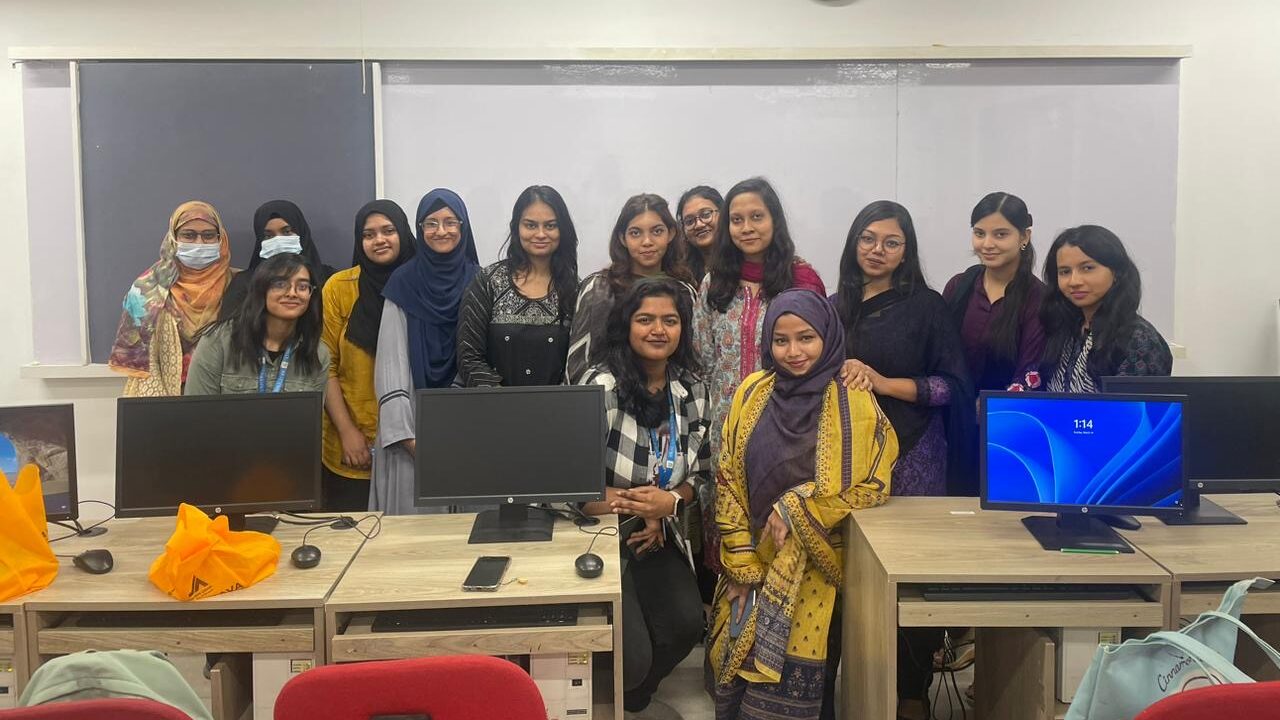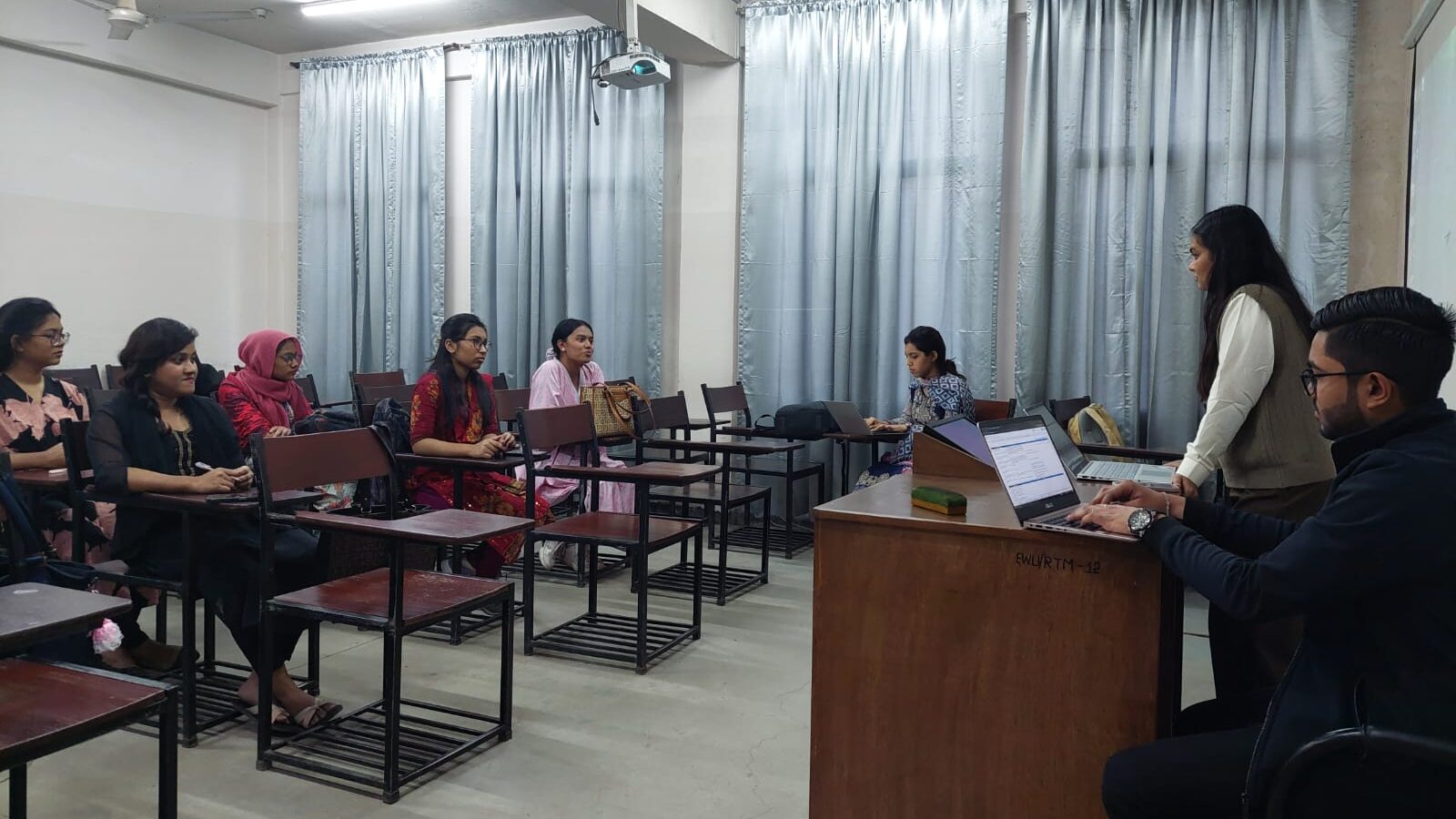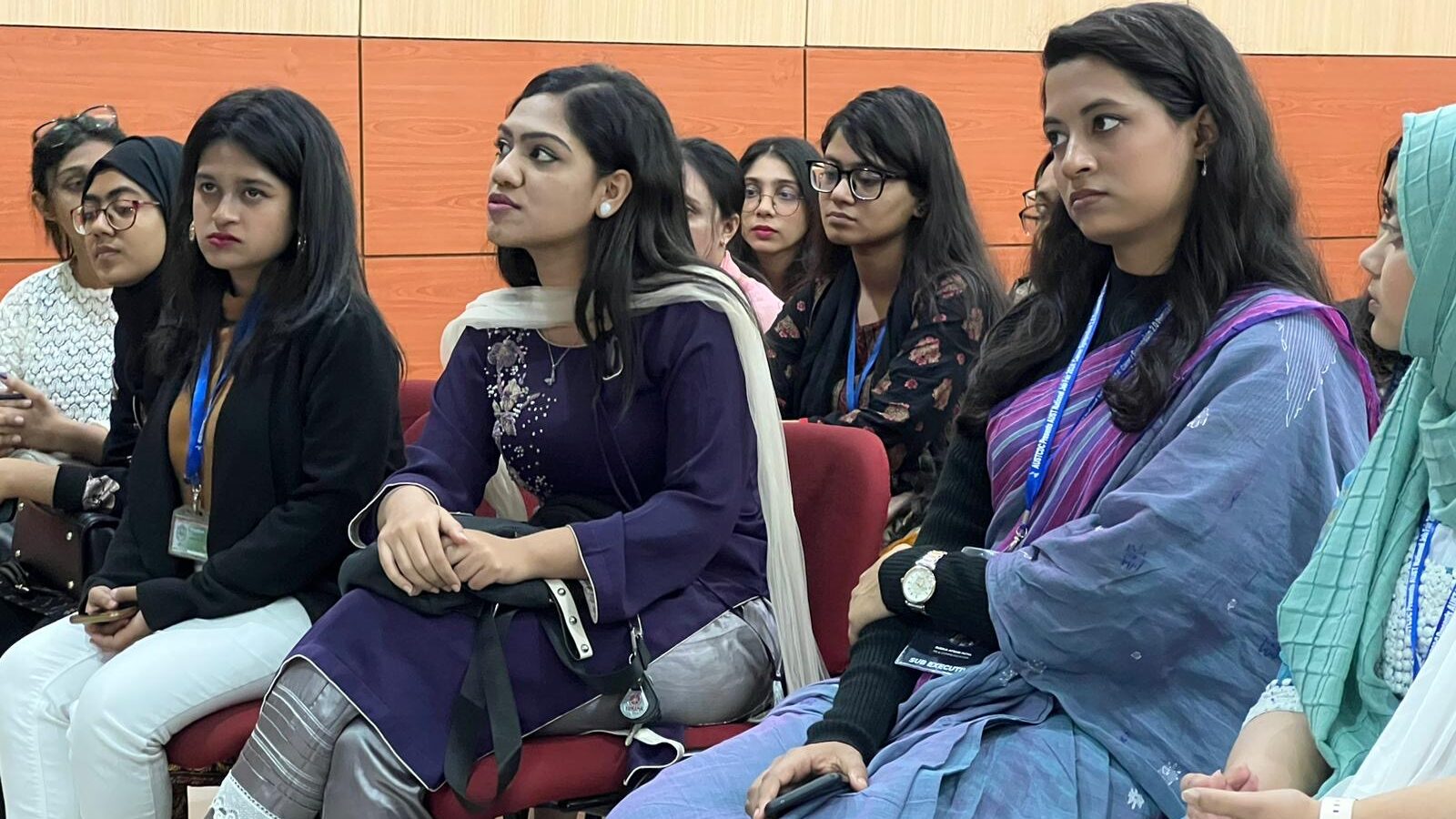The SheSTEM program is committed to inspiring, educating, and empowering women to pursue rewarding careers in STEM. We are devoted to enhancing industry-academia collaborations, increasing employability skills, and advocating for gender-equitable practices within Bangladesh. SheSTEM is supported by the Embassy of the Kingdom of the Netherlands, and implemented by 10 Minute School (10MS), a2i (Aspire to Innovate), ICT Division, DevLearn, LightCastle Partners, and Policy Exchange. In pursuit of insights to shape effective interventions, LightCastle Partners conducted a series of focus group discussions (FGDs) with students from seven notable universities across the country:
- Ahsanullah University of Science and Technology (AUST)
- Bangladesh University of Engineering and Technology (BUET)
- BRAC University
- East West University (EWU)
- Khulna University of Engineering and Technology (KUET)
- North South University (NSU)
- Shahjalal University of Science and Technology (SUST)
These discussions were designed to uncover the experiences, challenges, and aspirations of female students in STEM; the findings of which are currently being incorporated into a business case report set to launch on May 8th, 2024. This report, aimed at stakeholders, will detail the barriers to entry for female STEM students and graduates and seeks to mobilize support across sectors to address these challenges and invest in the future of women in STEM in Bangladesh.

The narratives emerging from these FGDs paint a picture of ambition and resilience, tempered by the realities of societal norms and educational shortcomings. Despite a clear passion for STEM among many female students, driven by personal interest and the influence of family and successful role models, the journey is often marred by gender biases, resource constraints, and societal expectations. This is particularly pronounced in rural areas, where traditional stereotypes pose significant obstacles to women’s participation in STEM.
Key insights from the FGDs emphasize the importance of early intervention to challenge gender stereotypes and the creation of supportive educational environments that promote gender diversity. The discussions highlighted a pressing need for initiatives aimed at facilitating access to STEM education for rural women, including scholarships, research funding, and the establishment of inclusive practices that encourage female enrollment. Moreover, the critical role of equitable environments, such as the provision of safe daycares, and policies that support women’s education and career opportunities became evident.
In synthesizing these discussions, several strategic directions emerge for the SheSTEM program. It is clear that tackling gender stereotypes from an early age, enhancing the inclusivity of STEM education, and ensuring women’s access to and success in these fields are paramount. Additionally, creating linkages between academia and industry to equip women with the necessary skills and opportunities, and fostering a work culture that values diversity and equity, are essential steps towards achieving gender parity in STEM.
The journey in STEM is fraught with challenges. Across universities, the focus groups revealed that students face glaring gender disparities in access to practical knowledge and opportunities. The curriculum deficiencies, particularly in advanced programming languages and practical skills sought by employers underscore the educational gaps that need bridging. At the university level, the educational experience is marred by gender biases, with female students often relegated to tasks perceived as less critical in group projects. Existing societal biases and family expectations also limit their mobility and opportunities, further exacerbating these disparities.
In contrast, an overwhelming majority of the participating students have expressed keen interest in building a career in STEM in Bangladesh, but their main deterrent is a lack of security and inadequate facilities provided by the job during mandatory activities like field visits and factory stays.

Despite these challenges, the aspirations of female students in STEM are high, with many eyeing careers abroad due to limited local opportunities and a desire for a more inclusive work environment. The feedback also reveals a critical need for updated and relevant curriculums that align with industry demands, as well as enhanced lab facilities to provide practical exposure. Recommendations from the discussions include the integration of skills development programs, more comprehensive industry-academia linkages, and the establishment of mentorship and networking opportunities to support female students in navigating their STEM careers. Additionally, there is a need for equitable and female-focused policies and practices within organizations to provide an environment where female STEM graduates can apply for and successfully take on the same jobs.
These insights from the focus group discussions offer a crucial perspective on the current landscape of STEM education for females in Bangladesh. They not only highlight the pressing issues and barriers faced by female students but also pave the way for targeted interventions through the SheSTEM program. By drawing on the experiences of and recommendations from female students across these universities, the SheSTEM program is uniquely positioned to champion the cause of women in STEM, contributing to a more inclusive and prosperous future for Bangladesh.





Leave a Reply